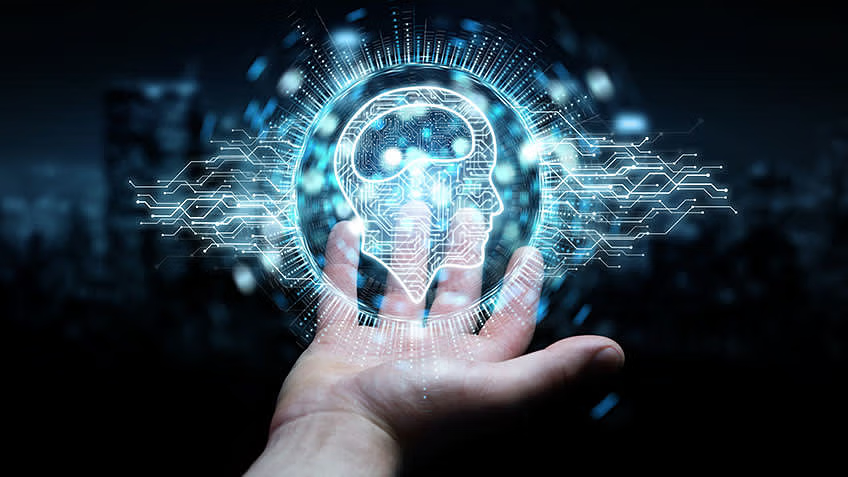
Table of Contents
Future of AI is no longer confined to the realm of science fiction. It is rapidly becoming an integral part of our everyday lives, transforming various aspects of how we live, work, and interact. As AI technology continues to advance, its impact is set to expand further, bringing both opportunities and challenges. Here’s a look at how AI is reshaping our world and what the future might hold.
Future of AI in Personal Assistants and Home Automation
AI-driven personal assistants, such as Amazon’s Alexa, Apple’s Siri, and Google Assistant, have become household staples. These virtual assistants use natural language processing to understand and respond to user commands, manage schedules, control smart home devices, and provide real-time information. As AI evolves, these assistants are expected to become even more intuitive, offering personalized recommendations and seamlessly integrating with other smart technologies to enhance home automation.
AI in Healthcare
AI is making significant strides in the healthcare sector, offering innovative solutions for diagnosis, treatment, and patient care. Machine learning algorithms are being used to analyze medical images, identify patterns, and detect diseases at earlier stages than traditional methods. AI-powered tools are also assisting in drug discovery, personalizing treatment plans, and predicting patient outcomes. In the future, AI is likely to play a crucial role in personalized medicine, telemedicine, and even robotic surgeries, making healthcare more efficient and accessible.
AI in Transportation
The transportation industry is undergoing a revolution driven by AI. Autonomous vehicles, including self-driving cars and drones, are at the forefront of this transformation. AI algorithms process data from sensors and cameras to navigate roads, avoid obstacles, and make real-time decisions. This technology promises to enhance road safety, reduce traffic congestion, and offer more convenient transportation options. Additionally, AI is being used in traffic management systems to optimize traffic flow and improve urban mobility.
AI in Retail and Customer Service
Future of AI to enhance the shopping experience and streamline operations. AI-powered chatbots provide instant customer support, handle inquiries, and assist with online shopping. Recommendation engines use machine learning to analyze customer preferences and suggest products tailored to individual tastes. In physical stores, AI-driven technologies such as checkout-free shopping and inventory management systems are improving efficiency and customer satisfaction.
AI in Education
The education sector is also experiencing the transformative effects of AI. Intelligent tutoring systems can provide personalized learning experiences, adapting to the needs and pace of individual students. AI-powered tools assist educators in grading, identifying learning gaps, and developing customized lesson plans. Virtual and augmented reality applications, driven by AI, are enhancing interactive learning and making education more engaging and immersive.
AI in Finance
In the financial industry, AI is revolutionizing various processes, from fraud detection to investment strategies. Machine learning algorithms analyze transaction data to identify suspicious activities and prevent fraud. AI-driven financial advisors, or robo-advisors, offer personalized investment recommendations based on market trends and individual goals. As AI continues to advance, it is expected to play a larger role in automating trading, risk management, and customer service within the financial sector.
AI and Ethics
While the potential benefits of AI are immense, there are also ethical considerations to address. Issues such as data privacy, algorithmic bias, and the impact on employment require careful attention. As AI systems become more integrated into our lives, it is essential to develop frameworks and regulations that ensure responsible and fair use of the technology. Ensuring transparency, accountability, and ethical practices will be crucial in navigating the challenges associated with AI.
Looking Ahead
The future of AI holds exciting possibilities, with advancements likely to bring even greater changes to our everyday lives. From enhancing convenience and efficiency to creating new opportunities and solving complex problems, AI is set to be a driving force in shaping the future. However, it is important to approach these developments with a thoughtful perspective, addressing both the potential benefits and the challenges that lie ahead.
As we continue to explore and harness the power of AI, its impact on our daily lives will undoubtedly become more profound, reshaping how we interact with technology and each other. Embracing these changes while maintaining a focus on ethical considerations will be key to ensuring that AI’s transformative potential is realized in a positive and beneficial way.
Conclusion
Future of AI, Artificial Intelligence is poised to be a transformative force in our daily lives, revolutionizing industries, enhancing personal experiences, and driving innovation across various sectors. From smart home assistants and advanced healthcare solutions to autonomous transportation and personalized education, AI’s capabilities are expanding rapidly. However, as we embrace the benefits of AI, it is crucial to address the associated ethical and practical challenges. Ensuring transparency, fairness, and responsibility in AI development and deployment will be essential in harnessing its full potential while mitigating risks. As we look to the future, the continued evolution of AI promises to reshape our world in profound ways, offering new opportunities and solutions while presenting challenges that will require careful consideration and management. The key to a successful AI-driven future will lie in balancing technological advancement with ethical stewardship, ensuring that AI serves to enhance and enrich our lives in a responsible and equitable manner.
